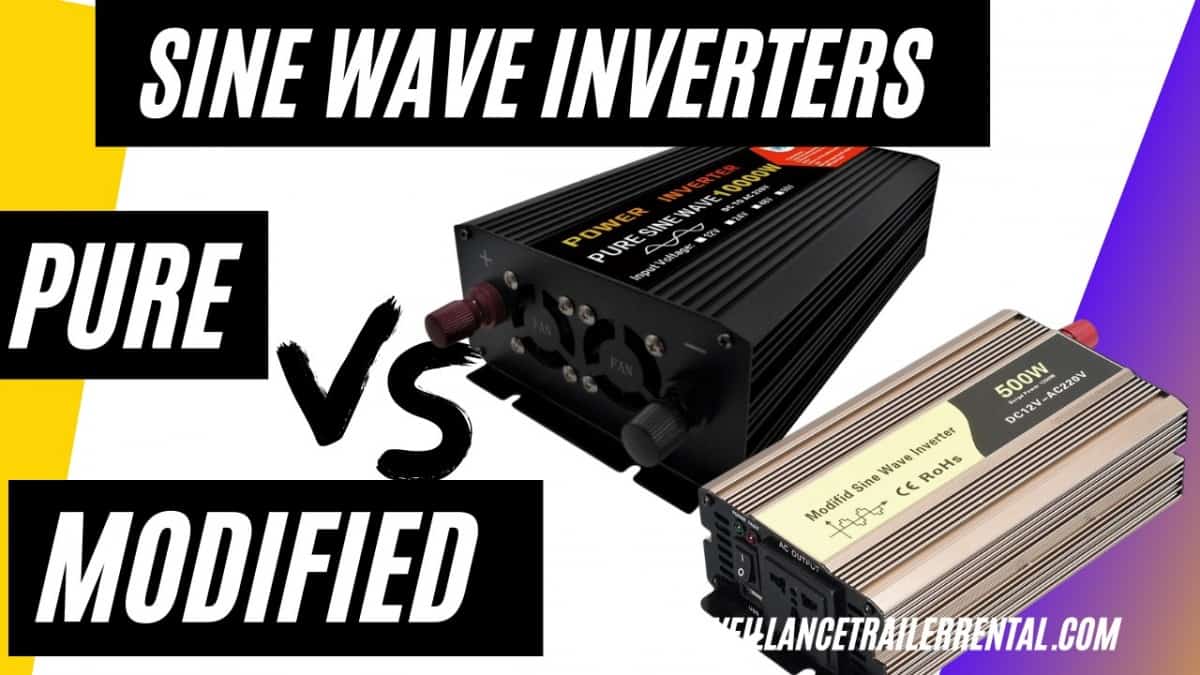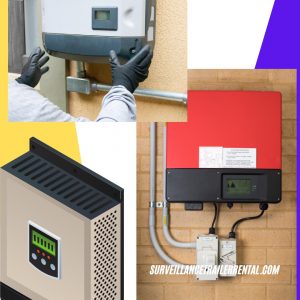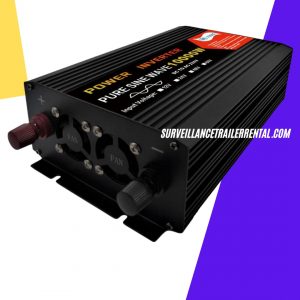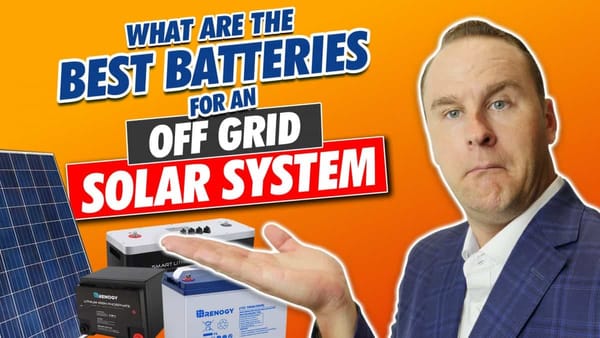Benefits of Pure Sine Wave Inverters vs Modified Sine Wave Inverters

Which is superior: Pure Sine Wave or Modified Sine Wave Inverters?
What should you be looking for when purchasing an Inverter?
Inverters are a vital component of every solar system. Inverters convert the DC power produced by your solar panels and stored in your battery to AC power. An inverter is required to power AC appliances and equipment commonly found in your home, cabin, RV, or off-grid video surveillance system. Before purchasing an inverter, you should consider your power consumption and the appliances you can power using an inverter.
There are two kinds of inverters that you can find when searching for inverters. They are pure sine wave and modified sine wave inverters.
This article aims to guide your choice by explaining the differences between these inverters and the ways they could power your installation.
What is a solar inverter?
Inverters are the bridge between your solar system and the devices drawing the energy from it. Inverters convert Direct Current (DC) which is what your solar panels produce into Alternating Current (AC). This is the standard for all commercial appliances.

Different solar inverters
Solar inverters are an essential component of a solar system. AC power is used by the majority of appliances and equipment you have in your home. Therefore the energy generated by the panels (DC) has to be converted to AC. Inverters and charge controllers convert the energy generated by your solar panels into usable electricity. You’ll then be able to plug in your appliances and start using the AC power. Inverters also provide overload protection as well. This applies to both DC input and AC output to avoid damage to the components and the unit.
What are pure sine wave inverters?
Pure sine wave inverters produce a voltage output in the form of sine waves. Pure sine wave inverters are always required if you will be tied to the grid. Basically, you will need pure sine wave inverters for sensitive equipment, CFL light bulbs, newer TVs, and appliances using AC motors (such as microwaves and refrigerators).
Pure sine wave inverters are the best choice for powering sensitive electronics.
Pure sine wave inverters are capable of producing smoother, cleaner, quieter, and more reliable power to operate appliances and electronics without interference. There are various types of pure sine wave inverters with various capacities to suit your solar system and energy requirements.
What are modified sine wave inverters?
For pure sine wave inverters, the AC power produced by the inverter closely matches that of a modified sine wave. Modified sine wave inverters alter the polarity from positive to negative in a snap. The wave is a square, stair-step pattern where the polarity is reversed. A choppy wave can result in damage to sensitive and delicate equipment. A modified sine wave inverter won’t work if you have medical equipment that you need to power, such as a CPAP machine. Additionally, in many cases, you’ll hear a hum when you connect devices to a modified sine wave inverter.
What can you power with a modified sine wave inverter?
Modified sine wave inverters may be used in systems not having sensitive electronics. It is possible to make use of the modified sine wave inverter when there isn’t an AC motor or sensitive medical equipment. A modified sine wave inverter is usually sufficient to power old tube TVs, water pumps, phone chargers, and so on.
They may be unable to work with appliances that use AC motors such as refrigerators, microwaves, or compressors. Equally, certain fluorescent lighting fixtures may not work using the modified sine wave inverter.
What can a pure sine wave inverter power?
- Appliances with AC motors include refrigerators and microwaves.
- Medical equipment, for example, CPAP machines having humidifiers.
- Sensitive and delicate electronics.
- Laser printers.
- Modern televisions.
- Appliances that have digital timers or clocks.
Note: Although your laptop may function fine with a modified sine wave inverter, some experts suggest that they may reduce the battery’s lifespan.
What are the advantages and disadvantages of using a modified sine wave inverter?
Pros
You can save money upfront: The primary benefit of using a modified sine wave inverter is that it costs less upfront. They generally cost between $50-$600. Pure sine wave inverters cost between $150 and $900.
Cons
Lower efficiency: Motors, such as those found in refrigerators, pumps, and fans will use consume more power from the inverter because of the lower efficiency. The majority of motors will consume around 20 percent more power. This is because motors are hotter when running and won’t last as long.
Incompatible with many appliances: As we’ve mentioned before, modified sine wave inverters will not work well with appliances with an AC motor or medical equipment, as well as other sensitive electronics. They may not light as brightly or emit a hum when using lightbulbs. Laptops could also experience a shortened lifespan when they are used with modified sine wave inverters.
What size inverter do you need?
Solar inverters come in different sizes. Inverters are rated according to watts, similar to solar panels. Your solar inverter converts DC electricity from your panels. Therefore you must have sufficient power to manage the total power generated by your solar array.
As a rule of thumb, the inverter’s size should correspond to the DC rating of your solar panel system. If you’re installing an inverter that is 3000 watts you must purchase an inverter with around 3000 W.
Pure sine wave inverters range in sizes from 700 to 3000 Watts. Inverter chargers can be a great option for those living off-grid who may also connect to shore power periodically and want to charge their battery. Inverter chargers can convert DC into AC. These chargers when connected to shore power can recharge and maintain a battery bank.
Conclusion? What should you purchase?

A pure sine wave inverter
Pure sine wave inverters used to be fancier and more expensive for users. However, they are becoming more affordable. Modified sine wave converters are still an option for those who have fewer appliances to power and don’t have to worry much about efficiency. However, if you want the peace of mind of knowing your appliances and devices will operate safely and at the most efficient levels, we suggest purchasing a pure sine wave inverter.
Learn more about inverters and other solar components here.



